Empowering Women Entrepreneurs: Angie Chang of Women 2.0
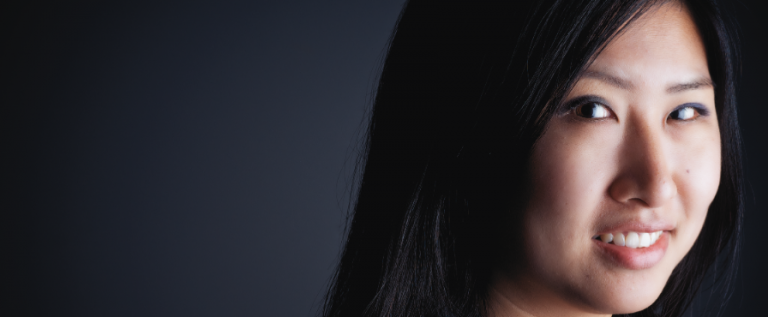
In December 2011, Angie Chang, 29, got laid off from her job as product manager at a startup company, her sixth startup in six years. Chang packed her things and moved to another San Francisco startup, but this time it was not anyone else’s but her own – Women 2.0 – which she co-founded in 2006 with three other twenty-something women, Shaherose Charania, Shivani Sopory, and Wen Wen Lam.
“At every tech conference, we were the only women in the room,” Chang said. “We wanted to meet role models – women who had started their own companies.”
Charania, now CEO of Women 2.0, had a colleague who matched the four founders and tossed them into a room at Facebook where he worked. The women came up with the name ‘Women 2.0’ and set out to create a conference specifically for women.
About 100 women attended the first Women 2.0 conference and discovered a sort of intrinsic connectedness that led to a demand for more. Chang said, “We were flooded with questions – when is the next one, where’s your sign-up list, what’s your website, how do I get more information?”
That was how, like many successful startups that originated with one simple concept, Women 2.0 was born. It is now an emerging global media company and business network supporting women in technology and startups. Its mission is to inform, inspire and educate a new generation of females who are entrepreneurial and successful.
“At every tech conference, we were the only women in the room.”
This past February, Chang delivered Women 2.0’s fifth annual conference. “It was our biggest and best event to date,” Chang recalled. “Our events usually sell out, so it was no surprise. But we had well over 1,000 women [attending this conference].”
Featured at the event were celebrated entrepreneurs including Caterina Fake (Flickr), Robin Chase (Zipcar), and Danielle Fong (LightSail Energy), as well as venture capitalists such as Aileen Lee (Kleiner Perkins Caufield & Byers) and Sukhinder Singh Cassidy (JOYUS), who served as judges for Women 2.0’s annual startup competition.
Aside from organizing sold-out conferences, Chang also produces Women 2.0’s other signature events including the PITCH startup competition (with one in NYC inaugurating this fall), startup workshops, and monthly networking events called Founder Fridays that are in 11 cities in the United States, Spain and Latin America and, according to Chang, “growing every month.”
“Everyone knew I had this thing on the side; I would take really long lunches and sit there thinking about what I would post for Women 2.0 that night. I was gently pushed out the door and was so happy because now I got to do what I love all day long.”
As Editor-in-Chief, Chang also bears responsibility for Women 2.0’s dynamic web platform that on any given day teems with news, information, and resources for and by women entrepreneurs, realized through a blog network that carries the voices of tech women and writers from all over the world. Chang also manages the company’s network – 30,000 members via a weekly email newsletter, 22,000 via Twitter, 10,000 via Facebook, and 28,000 via LinkedIn.
With results such as these, it is no wonder that Chang and Charania were named in 2010 among Fast Company’s most influential women in technology.
So why did it take Chang so long to really take the plunge and fully immerse herself into Women 2.0? “A lot of the guys at my job would leave and start their own companies and they didn’t even have a concept. I already had my own company, but as a woman I wanted to wait until my ducks were lined up in a row.”
Chang confessed, “Everyone knew I had this thing on the side. I would take really long lunches and sit there thinking about what I would post for Women 2.0 that night. I was gently pushed out the door and was so happy because now I got to do what I love all day long.”
It probably didn’t hurt that in October 2011, Women 2.0 received a second round of corporate sponsorship from the prestigious Ewing Marion Kauffman Foundation, one of the 30 largest foundations in the United States and with a special focus on entrepreneurship.
Once operating out of coffee shops, Chang now rents a co-working space in the SOMA neighborhood, where she met with us to chat about her journey as a social entrepreneur. From being an English and Social Welfare major at UC Berkeley who loved computer science but couldn’t get the grades, to being rejected more than once in applying to work at Facebook and Google, to becoming enamored with the concept of running her own startup (despite shunning business as a career choice in college), Chang also shared some thoughts on Asian Americans in entrepreneurship.
“Asian Americans need to develop and hold an entrepreneurial mindset and consider entrepreneurship as a viable career option. Even if you’re not personally entrepreneurial, look twice at entrepreneurs and support them. Recognize them for their role in creating businesses and form alliances with them.”
The following is a transcript of an interview between Angie Chang of Women 2.0 and Uyen Le Kry of ALIST Magazine. For the full story, click here.
- What are the biggest challenges for Asian American entrepreneurs, particularly Asian American women? Self-promotion is necessary to succeed in business. Asian American entrepreneurs are not as visible, fail to become role models and fail to be recognized for their successes because they are not willing to talk about their accomplishments.
- Does any of your Women 2.0 work address these challenges? We are a platform for women entrepreneurs to share their stories. Women usually work behind the scenes. What we do is poke them and tell them to talk to us. We tell them stories are nice, but it’s the bylines and headshots that make women even more visible. When I come across an Asian American woman entrepreneur who is hesitant to write about herself, I give her a pep talk. Over time she may feel empowered to share her story or speak at a conference, put her neck out there and be bold. I also assign writers to cover Asian American women who don’t like to write for themselves.
- What are some Asian American startups that you believe have been successful because of Women 2.0?
- Alexa Andrzejewski, Foodspotting
- Poornima Vijayashanker, Bizeebee
- Dana Wu, TenderTree
- Alice Wang, Spark Box Toys
- Julia Hu, Lark
- Elizabeth Yin, LaunchBit
- Did you face any personal challenges as an Asian American and/or a woman in your career? How did you overcome them? I had to learn to overcome shyness and my unwillingness to take the limelight. I organize tech events because I want them to happen, and I write about women entrepreneurs because I find their accomplishments inspiring. But this comes at the cost of me turning into a public figure and role model. I am learning to step into that role.
- Identifying co-founders is one of the most important decisions for a startup. What was that process like for you? How has it worked out? Co-founders are the people you can successfully work with for an extended period of time. You share a common vision. When one person is down or distracted, the other person works harder and eggs the down person along. Women 2.0 started with four co-founders and only two of us are still around. This makes sense because people’s lives change; however, the two of us remaining are super strong and committed to the cause. We are completely different in personality and skill set, which works out quite well for an early-stage startup. We hold weekly meetings over Google Hangout or Skype and make core decisions then; we also regularly chat on Skype and manage tasks on Wunderlist.
- If an offer comes from Google or Facebook to go work there today, would you take it? No, I’m too entrepreneurial to fit in the culture at Google or Facebook. I’m also a generalist and someone who likes to invent her own future and make her own schedule. I’m also enjoying my time as a scrappy startup entrepreneur.
- How do you describe your strategies for Women 2.0 success? We are a grassroots effort that over the years grew into a business. We speak from the heart and abide by the platinum rule. We perform at our best without putting other people down. We utilize social media and growth hack our way to wide distribution. We are expanding our events geographically and working to increase the readership of Women 2.0, to mainstream the idea that women start and run successful high-growth, high-tech companies.
- Where can your writing be found on the Internet? How do you distinguish between the work you do on behalf of Women 2.0 and that which is Angie Chang? As I run all things online for Women 2.0, the website bleeds my personality. I take the author byline for articles I write. I represent both myself and the company and have no problem blending or separating these identities. The tricky part is educating people that Women 2.0 and the other side hustle of mine, Bay Area Girl Geek Dinners, are separate projects. [Chang’s writings can also be found on The Huffington Post and Forbes.]
- What message do you have for an Asian American woman in college as she contemplates her career? Don’t be afraid to make a name for yourself as a self-starting entrepreneur. Own it, blog it, tweet it, and always give back to others.
- Talk about your family background. My parents came to California from Taiwan in 1982. I was born in Los Angeles later that year. I’m very grateful my parents gave me freedom in career choice. That doesn’t mean they didn’t try to give us guidance by enrolling my sister and me in every dance, gymnastics and tennis class, as well as piano, violin and Girl Scouts. But these classes gave us lessons in tenacity which I appreciate today. Plus I can play Beethoven’s Pathetique – a good party trick when the sheet music and a piano are available!
- What does mentoring look like among Asian Americans right now, and how can it be improved? I think people need to learn to ask for help. As Asian Americans, we may be less willing to admit we need help or a mentor, but we should learn to be forthcoming and request for mentorship and networks that will benefit us in our professional and personal lives.
- You’ve worked at several startups. What have you learned from those experiences that you have applied to your startup? I learned that you have to be a go-getter. You pick your projects and have to be diligent and smart about how you get to a successful metric. You have to prove your worth, pave your way and work harder than you ever had with less support than ever. That’s why networking is so important outside of the 9 to 5; you don’t have a huge corporate structure or affinity groups to lean on.
- Do you ever think about having a family? How do you think that will impact your work? Sheryl Sandberg was correct to tell the graduating class of Barnard at their commencement speech last year that the most important decision in your life as a young ambitious woman is the person you marry. Fortunately I am in the San Francisco Bay Area and date feminist men so I am hopeful I will partner up with a supportive spouse who will be OK with us hiring a nanny or two, allowing us to both work and have careers.
- How would you describe yourself to someone who has never met you? Ten years from now, what aspects of yourself do you hope will still remain? I would say that I love the Internet. I hand coded my own blogs and websites since high school to express my thoughts and share activities with friends. As a person, I am not loud or expressive. However, I’ve learned to step into more public roles because once Women 2.0 and Bay Area Girl Geek Dinners started gaining traction, people wanted to see who was behind the scenes. I had to step up, learn to speak to crowds and become more visible. I put my name to everything I write. I hope in 10 years that I am more expressive and loud. I hope in 10 years I’ve served as a role model to inspire more women to be more ambitious, learn new things, and better their lives.
The following is a list of companies that have benefited from the help of Women 2.0.
Alexa Andrzejewski, Co-Founder & CEO of Foodspotting, San Francisco, CA
- About product: The first mobile app for finding and rating restaurant dishes. Launched 2010.
- Inspiration: Foodspotting was inspired by a trip to Japan a few years ago where I discovered dishes I’d never heard of before like okonomiyaki and takoyaki. When I returned to San Francisco, I tried to find these dishes locally but there was no app for discovering and rating specific dishes.
- How Women 2.0 has helped me: In 2009, I joined Women 2.0’s Jumpstart Your Startup workshop which culminated with a Startup Weekend where I pitched my idea to a few hundred people and received our first angel investment. It wasn’t much at the time, but it was incredibly validating! We went on to raise a $750K seed round and $3M Series A in 2010.
- Biggest obstacle for Asian American women entrepreneurs: Having your idea or business taken seriously. Devil’s advocates have their place, but you should surround yourself with people who have ideas that seem crazy. When Soraya Darabi joined us as a co-founder, she aspired to get us on The Today Show. We thought she was crazy, but now we’ve been on it twice!
- Favorite part about being an entrepreneur: Being able to take an idea and see it come to life and then take on a life of its own. I can travel anywhere in the world and launch Foodspotting to find great dishes nearby.
Julia Hu, Co-Founder & CEO of Lark, Mountain View, CA
- About company: Produces Lark which is a silent alarm clock wristband, wireless sleep monitor, and personal sleep coach. Founded 2010.
- Inspiration: When my fiancé kept waking me up at 6:00 a.m. every morning, I decided to create a silent alarm that allows people to keep different sleep schedules.
- How Women 2.0 has helped me: Women 2.0 has been a great resource as an authentic network of women who have supported and mentored me as I’ve built a company. Writing for Women 2.0 has let me not only give back to the community, but also reflect on my most important failures and learning.
- Biggest obstacle for Asian American women entrepreneurs: We are socialized to be humble and perfectionist. We’re not taught that asking for what you want and being fearless are positive traits. But a lot of business rewards typically male characteristics such that women entrepreneurs seeking funding have to work twice as hard to become as tough, aggressive, and invincible as the men. Learning to understand and grow these traits is important for any Asian American women entrepreneurs.
- Favorite part about being an entrepreneur: Building a great team and working hard to improve the world.
Poornima Vijayashanker, Founder & CEO of Bizeebee, Palo Alto, CA
- About company: Provides membership management software to small businesses. Launched 2010.
- Inspiration: Developed solution after practicing yoga for nearly eight years and seeing the same membership management issues at every studio.
- How Women 2.0 has helped me: Women 2.0 has been great at highlighting our success from the initial stages to now. This has attracted investors, candidates, and built awareness for BizeeBee as a company.
- Biggest obstacle for Asian American women entrepreneurs: Taking a risk coming from a very traditional culture. This can be addressed by knowing there are resources available and building a strong network of mentors, advisers, and investors.
- Favorite part about being an entrepreneur: Building a team and a product that influences the way people live and work everyday.
Alice Wang, Founder of Spark Box Toys, Newark, NJ
- About company: A subscription service that delivers personalized, award-winning toys to children under the age of 4. When they outgrow the toys, send them back for more. Launched January 2012.
- Inspiration: We thought our idea of helping parents find the best age-appropriate toys for their child, while at the same time never having to actually buy and store the toys in a pile at the corner of the room, was something all moms would love! We spent months scouring the globe to put together a collection of educational toys that we are really proud of.
- How Women 2.0 has helped me: Starting and running a business is the most exhilarating experience but can also be an incredibly tiring path. It is very rare when we are not thinking about, worried about or immersed in the strategy or operations of our business. The highs and lows are never what you expect or what you can predict. Women 2.0 is a virtual community that reminds us that we are not quite so alone, nor are we crazy to do what we do.
- Biggest obstacle for Asian American women entrepreneurs: Finding great mentors – someone who understands your unique problems.
- Best part about being an entrepreneur: Being able to create something from nothing.
Dana Wu, Co-Founder & Head of Product and Design of TenderTree, Mountain View, CA
- About company: We help baby boomers hire trusted caregivers for their aging parents. Founded 2011.
- Inspiration: My co-founder Andy saw his friend go through the painful experience of hiring a caregiver for his grandmother. He realized building TenderTree can disrupt home care agencies, just like how Expedia disrupted travel agencies.
- How Women 2.0 has helped me: I was featured on the Women 2.0 blog and attended events such as Founder Fridays.
- Biggest obstacle for Asian American women entrepreneurs: It can be a ‘boys’ club’ and getting access to information can be difficult. What can be done about it? I’m happy to try to be helpful; email me at askanasianentrepreneur@gmail.com.
- Favorite part about being an entrepreneur: Working with top-notch people to change the world.
Elizabeth Yin, Co-Founder of LaunchBit, Cupertino, CA
- About company: An ad network for email. Founded 2011.
- Inspiration: Around the time that my first startup failed, my best friend from high school, Jennifer, was finishing her PhD. She decided that she didn’t want a career in research so I convinced her to start a company with me. While at the 500Startups accelerator last summer, we tried an experiment in manually placing a few ad creatives for advertisers into email newsletters. The initial results were good so we decided to continue betting on this idea.
- How Women 2.0 has helped me: I really have Angie to thank for putting our company on the map. By serendipity, I was put in touch with Angie and first met her in Berkeley where we were both living at the time. We started doing a couple of partner events with Women 2.0 which sold out immediately. As we evolved LaunchBit into an ad network for email, our initial customers were startups as well as Women 2.0 itself.
- Biggest obstacle for Asian American women entrepreneurs: While I was fundraising for LaunchBit, I met with an angel investor who asked, “Will you be able to lead a group of 100 people? You seem very soft spoken, and most CEOs I talk with are much louder.” I was shocked because I was always told over the years that listening is more important than talking, and I thought I was being respectful by not talking as boisterously or as much as I usually do. It made me wonder whether others in the investor community (or ecosystem in general) felt the same way. Stereotypes still certainly exist, and while not everyone buys into them, I think that purely by having more Asian American women run their own companies, we’ll start to see many of these stereotypes disappear.
- Favorite part about being an entrepreneur: Working with friends and having the freedom to map out your professional destiny.

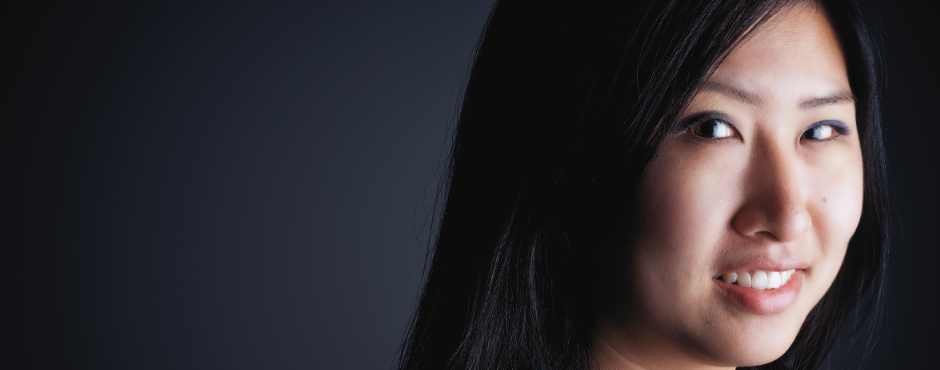
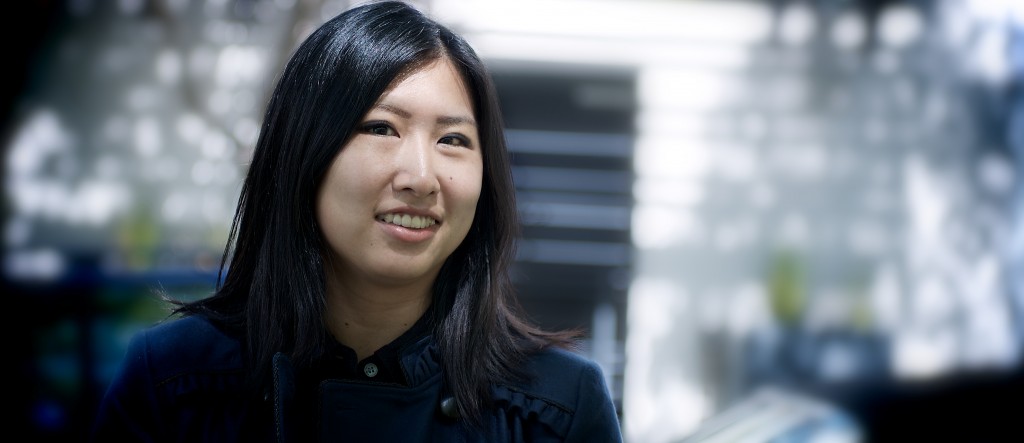

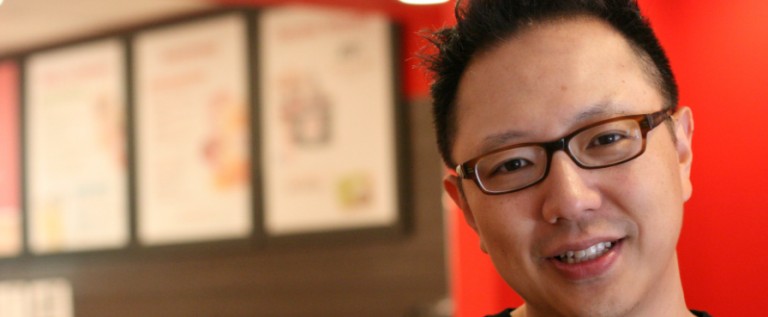
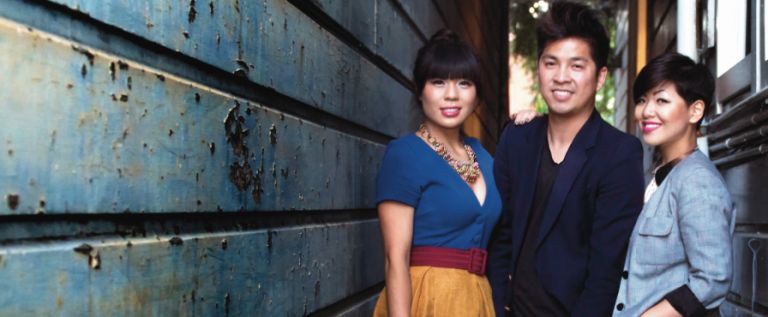
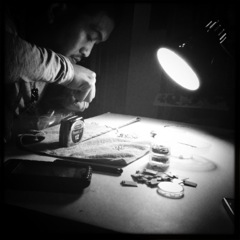

Pingback: Entrepreneuship « Good Girls Marry Doctors